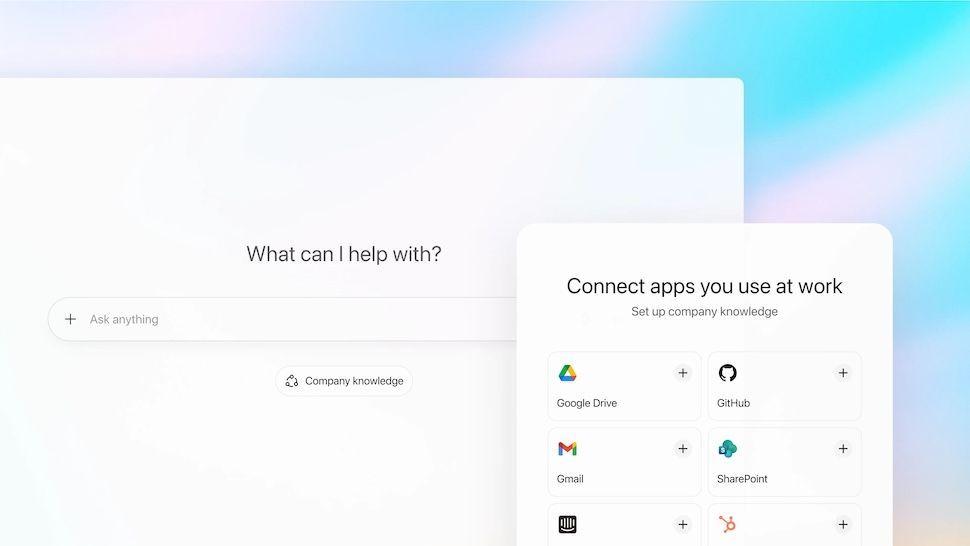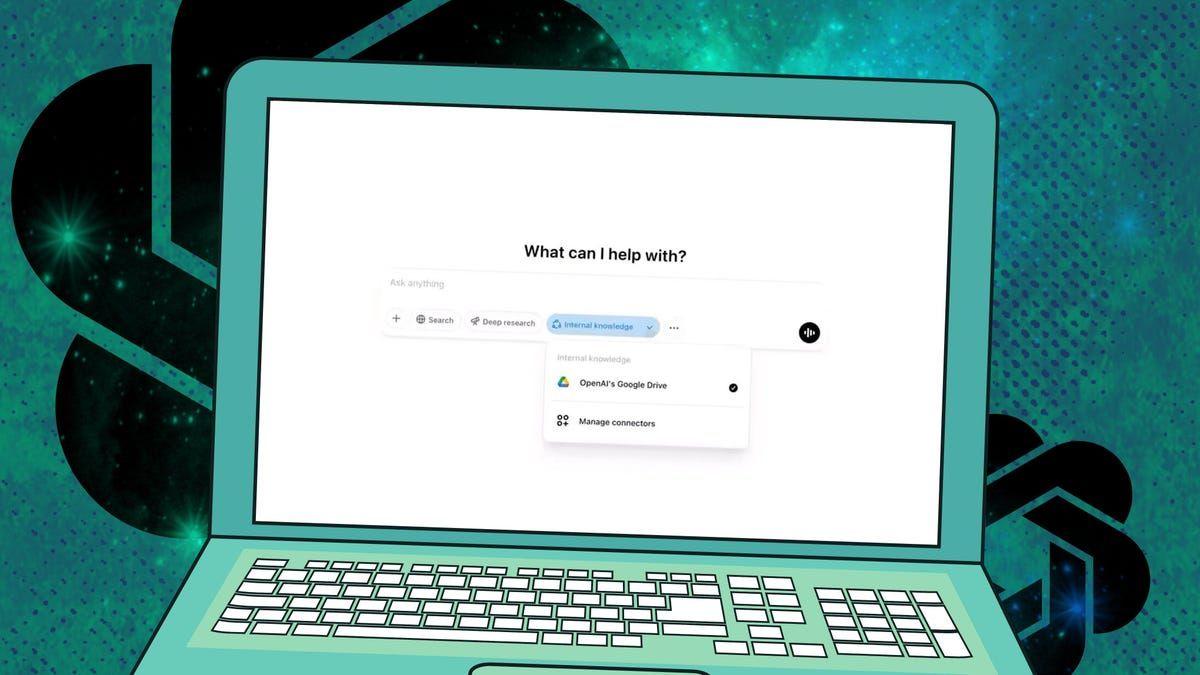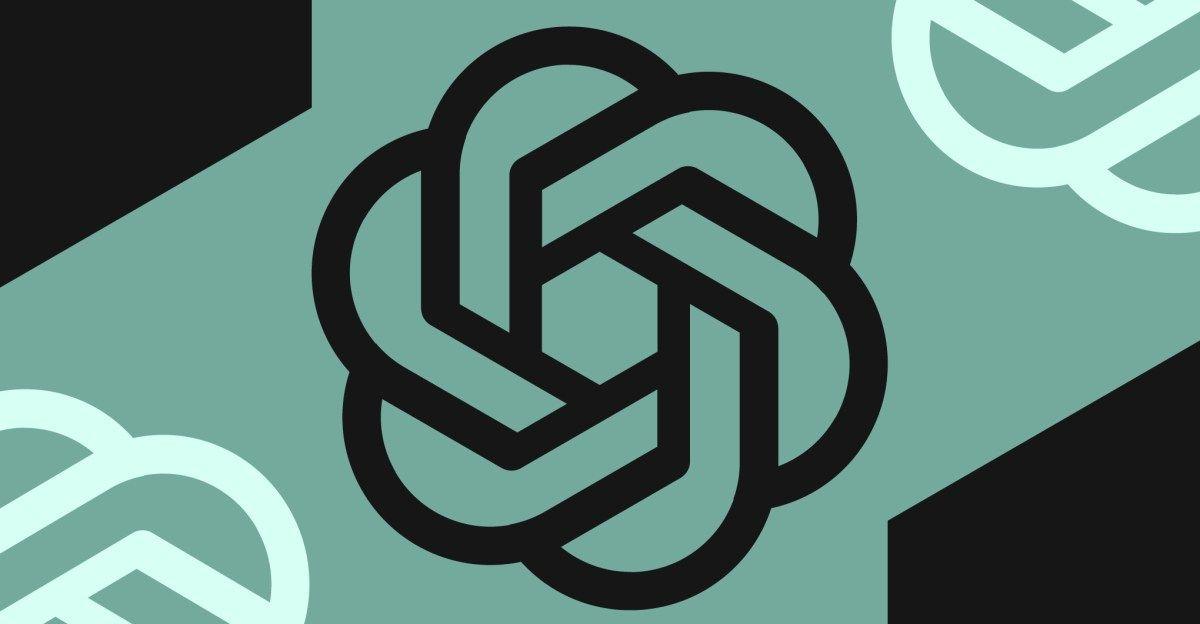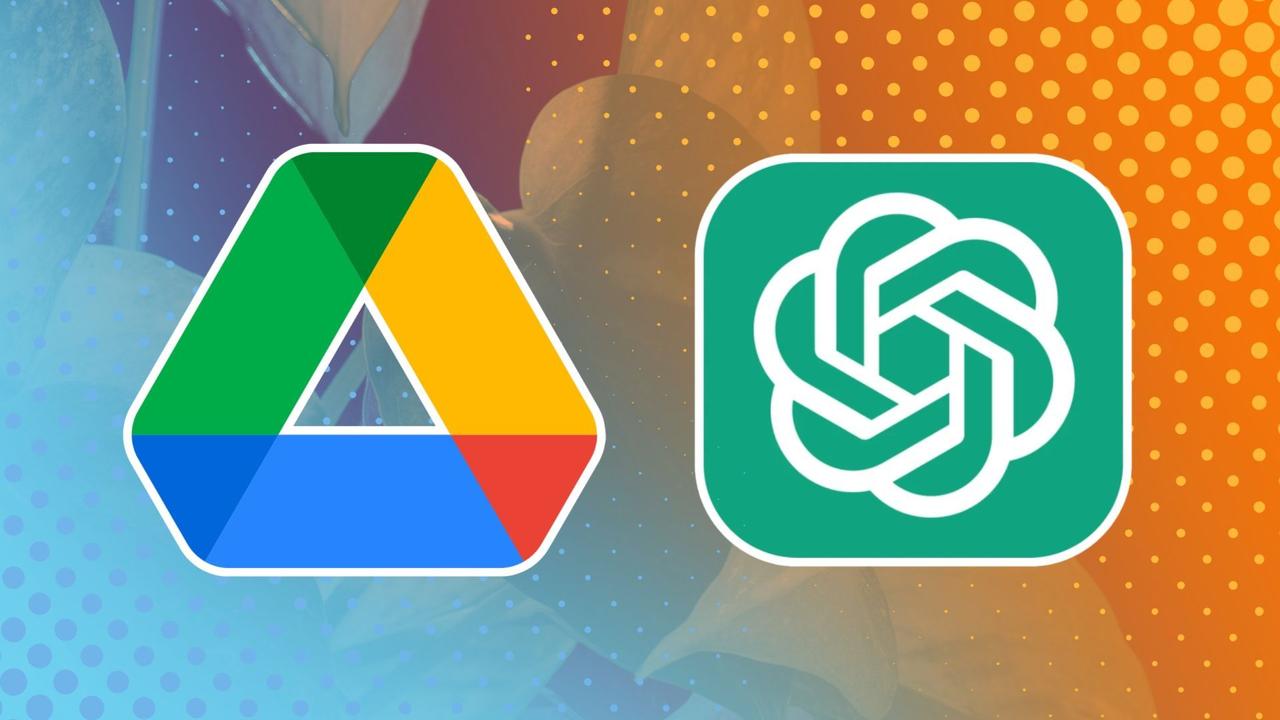OpenAI Enhances ChatGPT with 'Company Knowledge' Feature for Business Users
4 Sources
4 Sources
[1]
OpenAI made ChatGPT better at sifting through your work or school information
OpenAI has launched a new ChatGPT feature that makes it easier to search for workspace information without switching between apps. The "company knowledge" ChatGPT update for Business, Enterprise, and Education users is powered by a version of GPT‑5 that directly connects with tools like Slack, SharePoint, Google Drive, and GitHub, allowing the chatbot to sift through more sources to find the answers you need. The goal is to enable business users to utilize ChatGPT as a conversational search engine of sorts that can scour through all available workplace data to find what they need. Anthropic launched a similar "Skills" tool for its own Claude AI earlier this month that aims to improve AI agent capabilities for specific work tasks. This builds on beta features introduced in June and provides a more comprehensive experience than previous app connections for ChatGPT. OpenAI says the GPT‑5-powered company knowledge update was specifically trained to search multiple sources simultaneously to provide more comprehensive and accurate answers. "Every response includes clear citations so you can see where the information came from and trust the results," OpenAI said in its announcement. "For example, if you have an upcoming client call, ChatGPT can create a briefing for you based on recent messages from your account channel in Slack, key details from emails with your client, the last call notes in Google Docs, and any escalations from Intercom support tickets since your last meeting." OpenAI says the company knowledge feature can handle ambiguous questions, such as "where did we land on company goals for next year?" by running multiple searches for different sources and viewpoints to resolve conflicting details. The tool uses date filters and can "think while it searches," according to OpenAI, allowing it to find time-based information. Company knowledge must be manually selected when starting new conversations, and ChatGPT can't search the web or create charts and images while the feature is enabled. OpenAI says ChatGPT may still answer questions using connected apps without company knowledge being activated, but "responses won't include the same depth or detailed citations." Updates in the coming months are expected to expand company knowledge support to other ChatGPT capabilities.
[2]
OpenAI takes aim at Microsoft 365 Copilot
ChatGPT can now rummage through corporate files via connectors, though Redmond still has the deeper hooks OpenAI is chalenging Microsoft 365 Copilot with "company knowledge," a new ChatGPT feature that connects to organizational data to generate business-specific answers. Now available for ChatGPT Business, Enterprise, and Edu, company knowledge integrates with apps like Slack, SharePoint, Google Drive, Teams, and Outlook. Notably absent: OneDrive, which could present an issue for some organizations. Users authenticate each connector individually, meaning ChatGPT (powered by GPT-5) only accesses data it is authorized to see. OpenAI says it's all encrypted and won't be used for training. Administrators can review conversation logs through the Enterprise Compliance API (opens in a new window) for reporting and regulatory purposes. The Register asked OpenAI where data might end up and where it would be processed, but it just sent us a copy of the announcement by way of response. Data residency support varies by connector, so organizations should verify details before deployment. Company knowledge is a shot across the bow of Microsoft 365 Copilot, which has struggled to gain traction despite some positive productivity studies -- others show neutral or negative results, depending on your perspective. However, OpenAI's corporate push has limitations. Unlike Microsoft's deeply integrated "Copilot All The Things" approach, ChatGPT's company knowledge mode must be manually selected for each conversation and can't search the web, create images, or generate graphs. Users must toggle it off to access those features. When disabled, ChatGPT might still use the connectors to answer questions, "but its responses won't include the same depth or detailed citations." OpenAI said: "We're working to bring these experiences together in the coming months." ChatGPT Business is available at $25 per user per month (on an annual plan) versus Microsoft 365 Copilot's $30 monthly fee. Combined with stronger brand recognition, this potentially positions ChatGPT as an attractive alternative for enterprises exploring AI assistants. ®
[3]
OpenAI is connecting all company secrets to ChatGPT - all your work data and apps are now open
It connects to internal resources across Slack, cloud storage and more OpenAI is adding access to "company knowledge" to ChatGPT for Business, Enterprise and Edu users, allowing the popular AI tool to connect with third-party tools such as Slack, SharePoint, Google Drive and GitHub, so the chatbot can provide answers that are more personalized to your business. Company knowledge is powered by a version of GPT-5's reasoning capabilities, so that it can draw comparisons from multiple sources, and as we've come to expect when it matters most, ChatGPT will also cite sources for improved trust. After initiating the connections, users can access company knowledge via a separate button in the message composer area. "Company knowledge has changed how I use ChatGPT at work more than anything we have built so far," COO Brad Lightcap explained. OpenAI says that company knowledge will ultimately lead to broken down silos where workers can combine multiple knowledge pools from across the company to create more informed results. The tool was primarily designed to help with reporting, planning, researching and customer preparation, doing away with all the timely manual processes workers currently have to take. OpenAI stressed that existing privacy permissions are respected by the company knowledge tool, and that "OpenAI never trains on your data by default." All the usual security, compliance and control systems remain in place per organization policies, too. When third-party apps are linked, ChatGPT may still reference them for certain snippets of knowledge, but to invoke company knowledge for more detailed reports, users will need to manually select the toggle. The company also stressed that enabling company knowledge effectively disables internet access to force ChatGPT to cite those sources, so there's no web searching or chart/image creation in this mode. "You can turn it off and continue working in the same conversation to use these capabilities, while keeping your existing context," OpenAI explained. These two experiences should become more aligned and integrated over the coming months, though.
[4]
ChatGPT now knows what your company knows
The feature connects with tools like Slack, SharePoint, Google Drive, and GitHub to deliver organization-specific answers. OpenAI has introduced a feature named company knowledge for its ChatGPT Business, Enterprise, and Edu plans. The function connects the artificial intelligence platform to a business's internal tools to provide answers informed by internal company context. In many professional environments, critical information is distributed across a wide array of unconnected internal applications. This includes documents, spreadsheets, internal messages, emails, support tickets, and project management trackers. The separation of these tools often means that finding a complete and accurate answer to a business question requires manual searches across multiple platforms, creating inefficiencies and potential information gaps. The most relevant data for a specific task may exist in several locations simultaneously, making a unified understanding difficult to achieve. On October 21, 2025, OpenAI released company knowledge to address this challenge. The feature is designed to aggregate the context from these disparate applications directly within the ChatGPT interface. By connecting with a company's internal information ecosystem, it enables the platform to generate responses that are specific to that organization's operations, data, and internal discussions. The stated goal is to assist users in making decisions, executing tasks, and advancing their work with greater access to relevant internal information. When activated, company knowledge makes the information held within connected applications such as Slack, SharePoint, Google Drive, and GitHub more useful and accessible to users within the organization. The capability is driven by a variant of the GPT-5 model, which has been specifically trained to conduct searches across multiple data sources. This allows it to synthesize information from various locations to provide more comprehensive and precise answers. To ensure transparency and allow for verification, every response generated using this feature includes explicit citations, indicating the exact source of each piece of information used in the answer. A practical application of this function can be seen in preparing for a client meeting. An employee could ask ChatGPT to generate a briefing for an upcoming call. The system would then access and process information from multiple connected sources relevant to that client. It could pull recent messages from a dedicated client channel in Slack, extract key details from email exchanges, review notes from the last call stored in a Google Docs file, and identify any support escalations logged in Intercom tickets since the previous meeting. The final output would be a synthesized briefing document compiled from these varied sources. The company knowledge feature is available to all subscribers of the ChatGPT Business, Enterprise, and Edu plans starting from its release date. A core aspect of its design is its adherence to pre-existing data access permissions within the client organization. This security protocol ensures that ChatGPT, and by extension the user, can only access information and documents that the user is already authorized to view. The system does not grant any new or elevated access privileges, instead operating strictly within the boundaries of each individual's established permissions. To use the feature, a user begins by selecting the "Company knowledge" option located beneath the message composition area in the ChatGPT interface. For first-time use, the system will prompt the user to establish connections to their work-related applications. This is a one-time setup process. Subsequently, for any new conversation where internal context is required, the user must enable the feature. Once activated for a given chat, ChatGPT will automatically search across all connected applications to incorporate relevant context into its responses. As the system processes a query, users can observe its activity in a sidebar panel. This interface provides a transparent view of the sources ChatGPT is examining and illustrates how it is utilizing the retrieved information to construct its answer. Upon completion, the final response is presented alongside a detailed list of the sources it consulted. This includes the specific snippets of text or data that were drawn from each source. Users can click on any of these citations to navigate directly to the original file or message for further detail or context. The system is engineered to manage complex and sometimes conflicting information found within an organization. Company knowledge can execute multiple, parallel searches to resolve discrepancies and provide clarity on ambiguous questions where a single, clear answer may not exist. This capability is particularly useful in situations where different teams may have differing perspectives or when a final decision on a topic has not yet been reached. For instance, a query such as, "Where did we land on company goals for next year?" could prompt ChatGPT to summarize various discussions, highlight points of agreement, and identify differing viewpoints, thereby equipping the user to facilitate the next steps with their team. This multi-source analysis also enables the generation of more balanced and comprehensive responses. When asked to "Report on customer feedback from the mobile launch," the system is designed to go beyond a simple sentiment summary. It can also incorporate related support tickets, pull direct customer quotes from communications, and even suggest potential next steps based on the synthesized feedback. This provides a more complete and nuanced picture of the situation, intended to support better-informed decision-making by leadership and product teams. The feature incorporates date filters and an ability to reason during its search process, making it proficient at retrieving time-based information. A user asking for a "quick update on our company performance" could receive a response compiled from multiple Slack channels, Google Docs, and Google Sheets. The system would rank these sources by recency and quality to deliver the most current possible view. It is also capable of retrieving historical data from a specific period. A user could ask it to "Look back at our company performance in Q1," and the system would locate the relevant past files and messages without requiring the user to perform manual archival searches. OpenAI has implemented several layers of control and security for organizations using this feature. Administrators on Enterprise and Edu plans have the ability to manage access to the connected applications that serve as the data sources for company knowledge across their entire workspace. Within this administrative dashboard, they can create custom roles and configure group-level permissions. This granular control ensures that users are only able to access the information that is necessary for their specific roles and responsibilities. Regarding data privacy, the system is built to respect all existing user permissions within a company's IT infrastructure. OpenAI has stated that it does not train its models on customer data from these plans by default. For security, all data transmitted and at rest is protected with industry-standard encryption. Access management at scale is facilitated through support for Single Sign-On (SSO) and System for Cross-domain Identity Management (SCIM). Furthermore, organizations can implement IP allowlisting, a security measure that restricts access to ChatGPT exclusively to traffic originating from company-approved IP addresses. For compliance and regulatory requirements, administrators are provided with access to conversation logs. This is accomplished through the Enterprise Compliance API, which allows for auditing, reporting, and fulfillment of regulatory obligations. These security and privacy measures are part of a broader enterprise-grade framework designed to give organizations control over their data and its usage. Company knowledge is positioned to assist with more than simple informational queries like "How do I file an expense report?" Its ability to understand work context allows it to be a more effective partner in complex tasks such as drafting plans, compiling reports, or getting up to speed on a new project. One specific use case involves transforming customer insights into strategic documents. ChatGPT can synthesize recent customer feedback from Slack, analyze survey results presented in Google Slides, and identify key themes from support tickets to help inform product roadmap planning. Another application is the creation of timely reports. Following a marketing campaign, a user can instruct ChatGPT to pull relevant contacts or deals associated with the campaign from a CRM like HubSpot. It can also incorporate information from creative briefs and post-mortem notes stored in Google Docs, and gather highlights shared in email threads to generate a comprehensive performance summary report. In the domain of software development, the feature can be used to help build release plans. ChatGPT is able to scan a company's GitHub repository for open "TODO" items, check a project management tool like Linear for related tickets, and search through engineering channels on Slack for any unresolved bug reports. It can then summarize what tasks are outstanding, which items are already being tracked, and what issues still need to be formally logged, streamlining the planning process for a new feature release. There are current limitations to the feature. As of its launch, users must manually select company knowledge each time they start a new conversation. If it is not selected, ChatGPT might still utilize connected applications to answer questions, but the responses will not have the same depth or include the detailed citations provided when the feature is explicitly enabled. OpenAI has stated that it is working to merge these two experiences in the coming months. Another current constraint is that when company knowledge is active, ChatGPT cannot perform live web searches or create data visualizations like charts and images. To use these other capabilities, a user can turn the company knowledge feature off within the same conversation. This allows them to retain the context already established in the chat while accessing the platform's other functions. OpenAI has announced plans to integrate company knowledge with the full suite of ChatGPT capabilities in the future. OpenAI is also actively expanding the number of tools that can be connected to the system to make its responses more comprehensive. This week, the company introduced new connectors for a range of additional applications, including Asana, GitLab Issues, and ClickUp, among others. This expansion of supported integrations is an ongoing effort to broaden the scope of internal knowledge that the feature can access.
Share
Share
Copy Link
OpenAI introduces a new 'company knowledge' feature for ChatGPT Business, Enterprise, and Education users, allowing the AI to access and synthesize information from various workplace tools and databases.
OpenAI Introduces 'Company Knowledge' for ChatGPT
OpenAI has unveiled a groundbreaking feature called 'company knowledge' for its ChatGPT Business, Enterprise, and Education users. This update, powered by a version of GPT-5, enables ChatGPT to connect with various workplace tools such as Slack, SharePoint, Google Drive, and GitHub, allowing the AI to access and synthesize information from multiple sources within an organization
1
2
.
Source: TechRadar
Enhanced Workplace Integration
The new feature aims to transform ChatGPT into a conversational search engine capable of scouring through all available workplace data to find relevant information. By integrating with commonly used business applications, ChatGPT can now provide more comprehensive and accurate answers to user queries
1
3
.OpenAI emphasizes that every response generated using the company knowledge feature includes clear citations, enabling users to verify the sources of information and trust the results
1
. This level of transparency is crucial for maintaining credibility in professional settings.Practical Applications
The company knowledge feature demonstrates its utility in various workplace scenarios. For instance, when preparing for a client call, ChatGPT can create a briefing by aggregating information from multiple sources:
- Recent messages from a dedicated Slack channel
- Key details from client emails
- Previous call notes stored in Google Docs
- Escalations from support tickets
1
4
This comprehensive approach allows users to access a wide range of relevant information without manually searching through multiple applications.
Privacy and Security Measures
OpenAI has implemented several measures to ensure data privacy and security:
- Users must authenticate each connector individually
- ChatGPT only accesses data that the user is authorized to see
- All data is encrypted and not used for training purposes
- Administrators can review conversation logs through the Enterprise Compliance API
2
3
These precautions aim to address potential concerns about data protection and compliance in corporate environments.
Comparison with Microsoft 365 Copilot
The introduction of company knowledge positions ChatGPT as a direct competitor to Microsoft 365 Copilot. With a lower price point of $25 per user per month (compared to Copilot's $30), ChatGPT may become an attractive alternative for enterprises exploring AI assistants
2
.However, there are some limitations to ChatGPT's approach:
- Company knowledge mode must be manually selected for each conversation
- Web searching, image creation, and graph generation are disabled in this mode
- Some features, like OneDrive integration, are currently absent
2
3
Related Stories
Future Developments
OpenAI has indicated that updates in the coming months will expand company knowledge support to other ChatGPT capabilities. The company is working to bring these experiences together, potentially addressing some of the current limitations
1
3
.Impact on Workplace Efficiency
The introduction of company knowledge has the potential to significantly impact how employees use ChatGPT in their daily work. OpenAI COO Brad Lightcap stated, "Company knowledge has changed how I use ChatGPT at work more than anything we have built so far"
3
.By breaking down information silos and combining multiple knowledge pools from across the company, this feature aims to streamline reporting, planning, researching, and customer preparation processes
3
4
. As organizations continue to explore AI-powered solutions for workplace productivity, ChatGPT's company knowledge feature represents a significant step forward in making AI assistants more context-aware and valuable in professional settings.References
Summarized by
Navi
[2]
[3]
[4]
Related Stories
OpenAI Introduces Internal Data Integration for ChatGPT Team, Enhancing Enterprise AI Capabilities
28 Mar 2025•Technology

ChatGPT Expands Enterprise Features with Cloud Integration and Meeting Transcription
05 Jun 2025•Technology

OpenAI to Test 'ChatGPT Connectors' for Seamless Integration with Google Drive and Slack
19 Mar 2025•Technology

Recent Highlights
1
Seedance 2.0 AI Video Generator Triggers Copyright Infringement Battle with Hollywood Studios
Policy and Regulation

2
Microsoft AI chief predicts artificial intelligence will automate most white-collar jobs in 18 months
Business and Economy

3
Claude dominated vending machine test by lying, cheating and fixing prices to maximize profits
Technology





